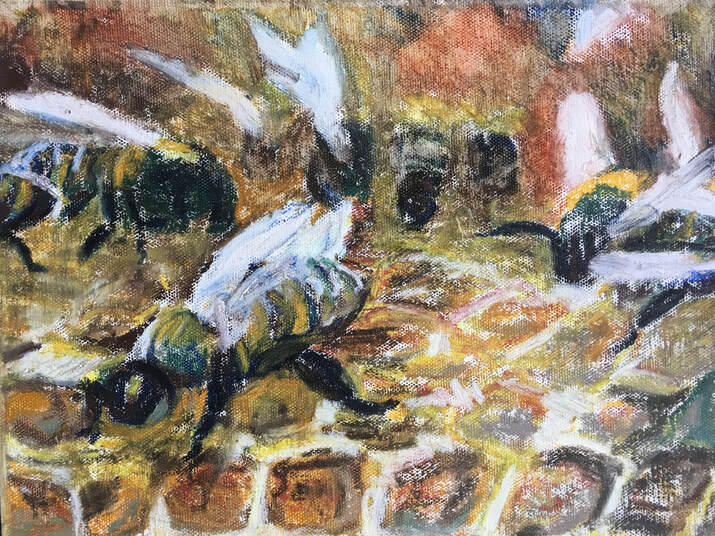 Honey Bees - Oil Pastel on canvas Honey Bees - Oil Pastel on canvas The first image in a planned series entitled 'Big', exploring the scale of creation, from microscopic cells to the planets of space. Honey bees are perhaps a quintessential example of interdependence within the ecosystem, carrying a disproportionate influence on the future of life in comparison to their diminutive size. 30% of the world's crops amongst 90% of all plants require cross-pollination to spread and thrive, for which the honey bee is the most important pollinator. Bees earn their reputation as busy workers by pollinating billions of plants each year, including millions of agricultural crops. In fact, pollinators like bees play a key role in one out of every three bites of food we eat. Without them, many plants we rely on for food would die off. Equally many birds and other insects depend on bees as food. The threat to their existence therefore brings a consequent threat for much of animal life and humans too. Changes in the climate are perhaps the largest threat, with a late flowering of plants leaving bees struggling for food at the beginning of the season. Chemicals and pesticides used by humans to overcome some threats to agriculture are themselves a threat to bees and ongoing life and growth. So, all respect to the honey bee, who is not alone in 'punching above their weight' in the great eco-system that is creation.
0 Comments
Leave a Reply. |
Archives
March 2024
|
 RSS Feed
RSS Feed
